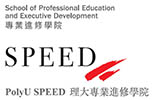雙語社評齊齊聽
[英語 (足本收聽)] Presented by TSANG, Wai-sum William, Lecturer of Hong Kong Community College, The Hong Kong Polytechnic University
[普通話 (足本收聽)] Presented by Dr JIAO, Nina, Lecturer of Hong Kong Community College, The Hong Kong Polytechnic University
In the burgeoning field of artificial intelligence (AI), "generative AI" has become the most eye-catching AI application recently. In the US, the AI chatbot programme ChatGPT has made a splash, attracting many to give it a try. Users only have to input a little information and the system will generate an article automatically. In China, Baidu is also planning to launch a similar product called "ERNIE Bot" (Wenxin Yiyan) next month. As China runs neck and neck with the US in the AI field, the technology race is set to become even more intense in the future.
Since generative AI can be applied on a wide scope of areas, it may bring about revolutionary changes to the job market and many industries. It is likely to follow the example of social media and trigger another revolution of everyday life. However, like social media, generative AI is also a double-edged sword that may be misused for fraud, plagiarism or dissemination of misinformation. At the end of last year, the Hong Kong government issued the Innovation and Technology Development Blueprint, proposing a new industrialisation, of which AI will be one of the core points. While the SAR has to speed up the process, it should also start pondering the issue of regulating the technology.
The Fourth Industrial Revolution has dawned on human society. Unlike the previous ones which were about mechanised production (the first), electrified mass production (the second), computerisation and automation (the third), the crux of the Fourth Industrial Revolution lies in the integration of virtual reality and real life, as well as intelligentisation, in which AI plays a decisive role. In recent years, AI has found its way into more and more aspects of popular use, but the birth of AI chatbot programmes has still brought about a shock that goes beyond the imagination of many.
Last April, Open AI, a company backed by investments from Microsoft, launched a generative AI programme called DALL-E2. After the user has inputted some simple words, the system can imitate the style of the great masters in painting and generate a spectacular picture. Then, at the end of last year, the company also launched a chatbot programme, ChatGPT, and offered free trials to netizens. The system can answer questions in response to commands. It can even write things including jokes, poems, articles, prose and even long essays. Within only a few months, millions of people have already tried it.
Generative AI can "create" various types of multimedia content like text, videos, sound clips, images and so forth. The emergence of AI chatbots has further pushed the popular use of generative AI to a completely new level and scope. The parent company of Google is also speeding up the internal testing of its AI chatbot Bard, while ERNIE Bot, developed by China's Baidu, is set to be launched next month.
Existing AI chatbots still have their incapabilities. However, homework essays automatically generated by ChatGPT — despite their mediocre content — are enough to obtain a passing grade and pass the inspection by a university anti-plagiarism software. The development and application of technology have always been double-edged. They can benefit humankind, but they can also cause damage and harm. It is expected that more generative AI companies and a large number of related application platforms will emerge in the coming years. Hong Kong must be prepared for the arrival of the great era of AI. That includes taking the initiative to participate in developing the technology as well as following up on the issues of regulation and social adaptation.
迎接AI創作大時代 積極參與兼思考監管
人工智能(AI)方興未艾,近期最新矚目的應用,首推「生成式人工智能」(Generative AI)。在美國,AI聊天機械人程式ChatGPT掀起試用熱潮,用戶輸入小量資料,系統便會自行生成文章;在中國,百度亦有意下月推出同類產品「文心一言」,中美AI分庭抗禮,未來科技競賽勢更激烈。
生成式AI用途廣泛,對就業市場和很多行業將帶來顛覆性的變化,有可能繼社交媒體之後,掀起另一場生活革命,惟跟社交媒體一樣,生成式AI同樣是一把雙刃劍,有可能被濫用於欺詐、剽竊和發放假資訊。去年底港府發表創新科技發展藍圖,提倡新型工業化,AI是重點之一,特區既要加快推動,同時亦要開始思考監管問題。
人類社會迎來第四次工業革命,有別於之前的機械化生產(第一次)、電氣化大規模生產(第二次)、電腦化及自動化(第三次),第四次工業革命核心在於虛擬現實結合及智能化,AI發展舉足輕重。近年AI應用愈益普及,然而AI聊天機械人程式面世所帶來的震撼,還是超出了很多人的想像。
去年4月,微軟有份投資的公司OpenAI,推出名為DALL-E2的生成式AI,用戶輸入一些簡單語言,系統就能模擬大師畫風,生成精美圖畫;及至去年底,該公司又推出聊天機械人程式ChatGPT,開放網民免費試用,系統懂得依提示字元回答問題甚至作文,包括笑話、詩歌、文章、散文甚至長篇論文,短短數月已有百萬計人士試用過。
生成式AI可以「創作」出各種跨媒體內容,包括文字、短片、聲音、圖像等,AI聊天機械人的出現,將生成式AI普及應用,推向嶄新層次與天地。Google母公司旗下的AI聊天機械人Bard,也在加緊做內部測試。中國百度旗下的AI聊天機械人「文心一言」,亦準備下月推出。
現時的AI聊天機械人尚有不足,不過由ChatGPT自動生成的論文功課,儘管內容水平不高,但成績足以及格,兼能通過大學的防抄襲軟件檢查。科技發展及應用,從來都是雙刃劍,可以造福人類,亦可帶來破壞與傷害。預料未來數年將湧現更多生成式人工智能公司,以及大量相關應用平台。香港必須為迎接AI大時代做好準備,這包括積極投身參與發展,以及跟進監管及社會適應問題。
明報社評 2023.02.08







